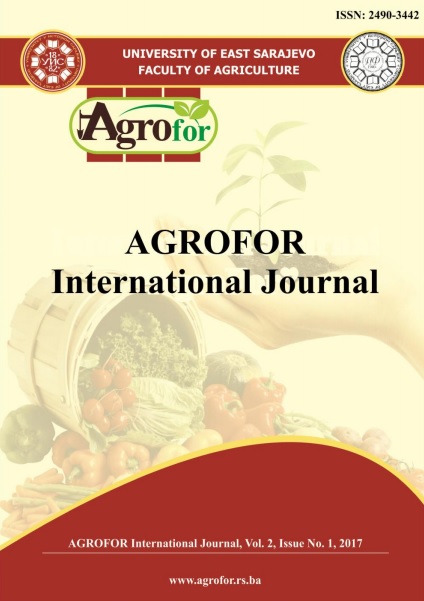SANITARY CONDITION OF PICEA ABIES (L. ) KARST. YOUNG FOREST STANDS DEPENDING ON THE SPATIAL SPECIFICITY
DOI:
https://doi.org/10.7251/AGRENG1701068RAbstract
As a result of nature resources intensive use, most of ecosystems have been
converted. Anthropogenic impact includes changes of forest stands structure and
their spatial specificity in the forest area. Accordingly the sanitary state of Norway
spruce young forest stands can be affected by different risk impact factors of
management. The aim of the research was to analyze the spruce Picea abies (L. )
Karst. young forest stands sanitary condition depending on forest plots spatial
specificity and location in the forest areas. The data were collected in 4 regions of
Latvia in spruce young forest stands (1 - 40 years old). The research was conducted
in young natural and artificial stands (pure – 44, mixed – 42). In total 502 sample
plots with a total area of 28250 mwere installed. The particular plot size (25, 50,
100 and 200 m) were selected depending on the stand average tree height, while
their number depended on the forest stand area. A total area of investigated forest
stands were 127. 5 hectares. Results showed that the expression of spatial specifics
depended on risk factors and their intensity, as well as the environmental
characteristics. Damages caused by abiotic risk factors at different forest stands
were not the same regarding intensity, nature and volume, but more or less closely
were related to all site conditions. Spatial specificity of forest stands area (regular
and irregular), as well as their location in the forest massif significantly affects the
spruce young forests sanitary status (respectively p=0. 027 and p=0. 002). Different
risk factors damage to forests, bordering with spruce or pine young growths,
cutovers and various types of infrastructure, were identified as much more
important.

